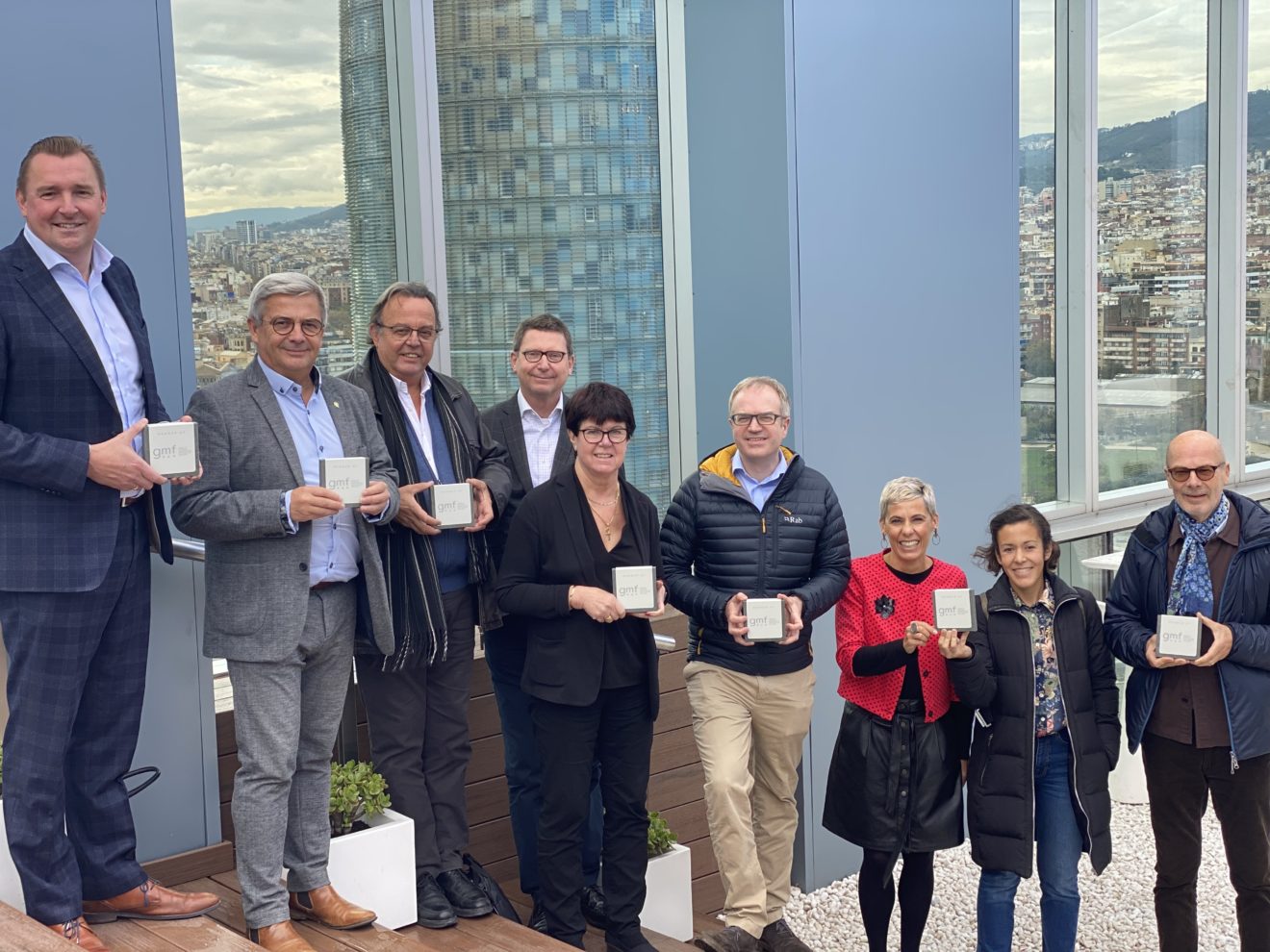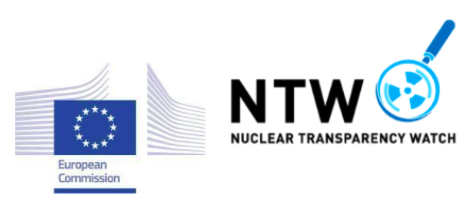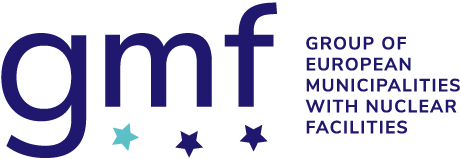UPCOMING EVENTS:
GMF meeting on radioactive waste management and technical visit to Krsko, Slovenia, 17-18 May 2022
GMF General Assembly and seminar in Borsele, Netherlands 4-5 October 2022
SAVE THE DATES
| Covid-19 situation allowing, we look forward to meeting you for the two upcoming events in Krsko (Slovenia) in May 2022 and in Borsele (the Netherlands) in October 2022. Further information in the first quarter of 2022. |
| In the meantime, stay safe and best wishes for the holiday season!!
|
|
 |
GMF EXTENDED STEERING COMMITTEE MET IN BARCELONA, 24-25 NOVEMBER 2021
| Members of the GMF extended Steering Committee met on 24-25 November in Barcelona to plan the strategy of GMF for the next years. The president, Ms. Pia Almström and vice presidents, Mr. Philip Matthews, Mr. Gerben Dijcksterhuis; Mr. Mats Rosén, assistant to GMF President; Mr. Ted Linqvist (KSO, Sweden), Mr. Kris van Dijck (Dessel, Belgium), Ms. Teresa Durán and Mr. Mariano Vila d’Abadal (AMAC, Spain); Mr. Patrick Fauchon (ARCICEN, France) and GMF coordinator, Ms. Meritxell Martell. The GMF extended steering committee will establish contacts with EU Parliamentarians, European Commission and European organisations with similar interests as GMF to discuss the role of nuclear energy in the energy transition towards decarbonisation. |
| See above the picture of the GMF members participating in the meeting in Barcelona (Mr. Patrick Fauchon was online).
|
|
GMF WORKING GROUPS
| GMF has now 3 working groups on: a) radioactive waste management (the European local Network of Radioactive Waste Dialogue, ENWD), b) emergency preparedness and response and c) decommissioning. There are normally 3 to 4 meetings per year to exchange information and plan activities. |
|
|
| Should you be interested to join these groups, receive the information exchanged or propose specific activities, please send an email to GMF coordination at gmf@gmfeurope.org |
|
|

|
NUCLEAR TRANSPARENCY WATCH ONLINE EVENT IN JANUARY WITH PARTICIPATION FROM GMF MEMBERS
The Nuclear Transparency Watch network and the European Commission (DG ENER) are
organising an Aarhus Convention and Nuclear (ACN) Roundtable on “Cross-border Emergency Preparedness and Response to nuclear accidental and post-accidental situations (EP&R)” with successive half-day morning sessions to be held on January 12th, 19th, and 26th, 2022. An overview of current progress of the implementation EU EP&R provisions will be provided together with a regional perspective. |
| Mr. Kris van Dijck, mayor of Dessel, Belgium, will give a talk on tourism issues and negative impact on the territory image on 12th January. In addition, Mr. Gerben Dijcksterhuis, GMF’s Vicepresident and Mayor of Borsele, Netherlands, will speak on 26th January providing the local feedback from COVID in the session on cross-analysis of nuclear post-accident /COVID. |
|
LESSONS FOR EMERGENCY SERVICE EMPLOYEES AND DECISION MAKERS FROM FUKUSHIMA
| Extract from the foreword of the report “Fukushima. Lessons for Emergency Service Employees and Decision Makers” by the Centre for Nuclear Emergency Preparedness of Safety Region Zeeland who kindly translated it to English to make it available to GMF members. |
| “[…] From a municipality’s point of view, ‘Fukushima’ shows us how difficult it is to reach the citizens and not lose their trust. An accident with an invisible enemy, the relationship existing between nuclear energy and nuclear weapons, what – to citizens – might seem to be a juggling act with standards and figures, far-reaching measures that cannot be solidly justified and that differ from one country to the next… Determining action zones, prioritising measures, when measures can be stopped and how to switch from an emergency situation to a normal situation. This guarantees unrest, confusion, and conflict of opinion in the municipality and communities, where the municipal administration and the emergency services have their role to play. The growth of social media since 2011, has acted as a major catalyst in this sense well be beyond ‘Fukushima’. From this perspective, there is a kinship with that other invisible enemy: the Corona virus. Our people are closely following the approach to the Corona pandemic in different countries, in order to learn from it and see what we can improve from experiences with the pandemic. Conversely, those responsible for the Corona pandemic could learn a lot from the preparation for nuclear accidents and an accident like ‘Fukushima’. |
| In any case, everything very much depends on the trust that citizens have in local government and the local emergency workers and enforcers. After all, those are the, sometimes masked, faces that actually turn up when the need arises. That trust needs to be built upon the preparation achieved. |
| Because we can learn a lot by looking at ‘Fukushima’ through municipal glasses, the Centre for Nuclear Emergency Preparedness of Safety Region Zeeland evaluated the nuclear accident and its aftermath for municipalities and emergency services in 2013. Now that I have been asked to represent the GMF in a project with the European Union aimed at nuclear accident preparedness, I thought this would be a good time to make our Fukushima report available to you by translating it. I hope that you enjoy both reading it and learning from it. |
|


